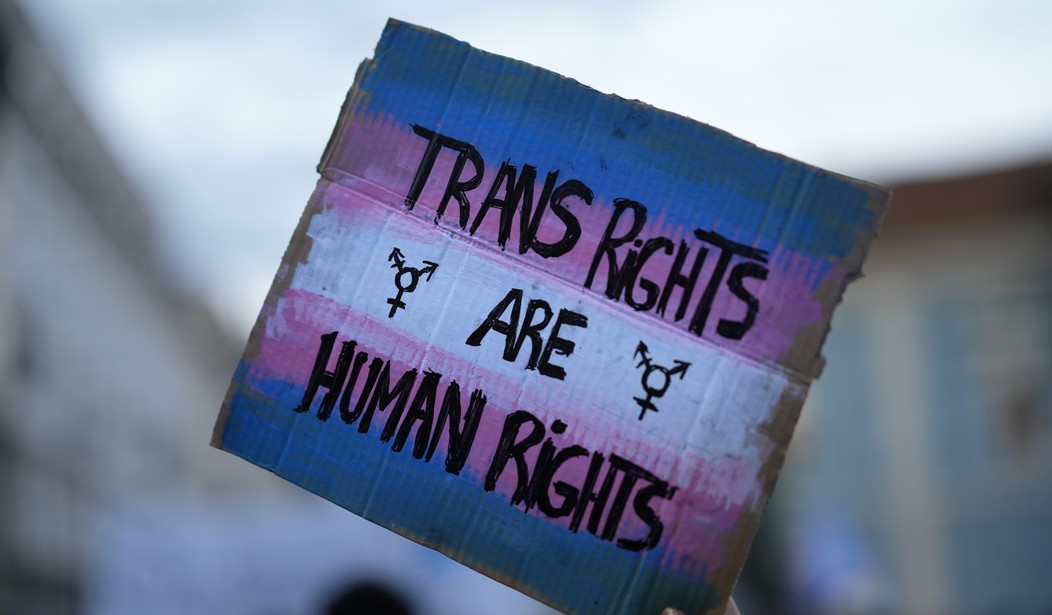A transgender elder recently won a settlement with an assisted living facility after allegedly getting turned away for being "transgender." The settlement stipulates that biological males be allowed to live with females in elder care facilities.
Marie King, a 79 year old biological male who identifies as a woman, filed a claim through the GLBTQ Legal Advocates and Defenders against Sunrise Assisted Living, a facility under Adult Family Care Homes of Maine. The facility allegedly refused to give King a room because King is a biological male and requested to live with a female roommate (via GLAD):
In the spring of 2021, a social worker at Pen Bay Medical Center contacted Sunrise on behalf of Ms. King, who at the time was a patient at the hospital. The facility initially said there was a room available, but upon learning that Ms. King is transgender Sunrise informed the hospital they would not admit her because she requested to reside in a room with a female roommate.
The complaint against Sunrise Assisted Living and Adult Family Care Homes of Maine says "upon information and belief, Sunrise has semi-private rooms and places a female resident with a female roommate." King, however, is not female. King is a biological male who identifies as a woman.
Adult Family Care Homes of Maine formerly had policies to separate residents by sex, but the new settlement authored by GLAD stipulates that AFCH facilities assign rooms by gender identity instead (via GLAD):
Placement of an applicant/resident in a shared room setting that is separated by sex shall be made based upon the applicant/resident’s gender identity, not their assigned sex at birth. The law does not require people who are transgender to have any particular anatomical or physiological makeup in order to identity as a particular sex or gender. Transgender women will be respected fully as women and treated the same as other women in the facility, without any inquiry into particular surgeries or medical treatment.
Recommended
In other words, biological females can now be made to live with biological males under this new policy. The settlement also stipulates that residents cannot complain about being placed in a room with a person of the opposite sex (via GLAD):
The objection or discomfort of any resident is not a basis to deny access or alter equal treatment of a transgender resident as required by this policy, including placement of a transgender person in a shared same-sex room. If any resident expresses a concern, fear, or objection to the presence of a resident who is transgender, staff must immediately intervene to explain AFCH’s nondiscrimination policy. Residents must be provided education sufficient to understand that any home operated by AFCH is a community where everyone is to be welcomed and respected, including transgender people.
In an effort to be more inclusive of transgender residents, AFCH now has the right to deny the preferences and the comfort of biologically female residents who do not want to live with biological males.
The claim appealed to the Maine Human Rights Act which says the ability to secure housing without discrimination based on sex or gender identity is a civil right. GLAD is calling the win a "landmark settlement" (via GLAD):
The milestone finding in Marie’s case is a huge step toward ensuring anyone who needs access to a long-term care facility is welcomed with courtesy and respect.
NBC News noted that the settlement "does not set a binding legal precedent."
"But legal experts nevertheless expect it to raise awareness that nursing homes and other assisted living facilities must abide by various state and federal laws barring them from discriminating against transgender people. The settlement also provides a roadmap for how such facilities can better serve the needs of LGBTQ seniors," the report added.
The win is certainly the first of its kind because people aged 65 and older represent the smallest demographic of those who identify as transgender. As Townhall reported, even though the number of people identifying as transgender is increasing in the United States, only 0.3% of people older than 65 identify as transgender.

























Join the conversation as a VIP Member